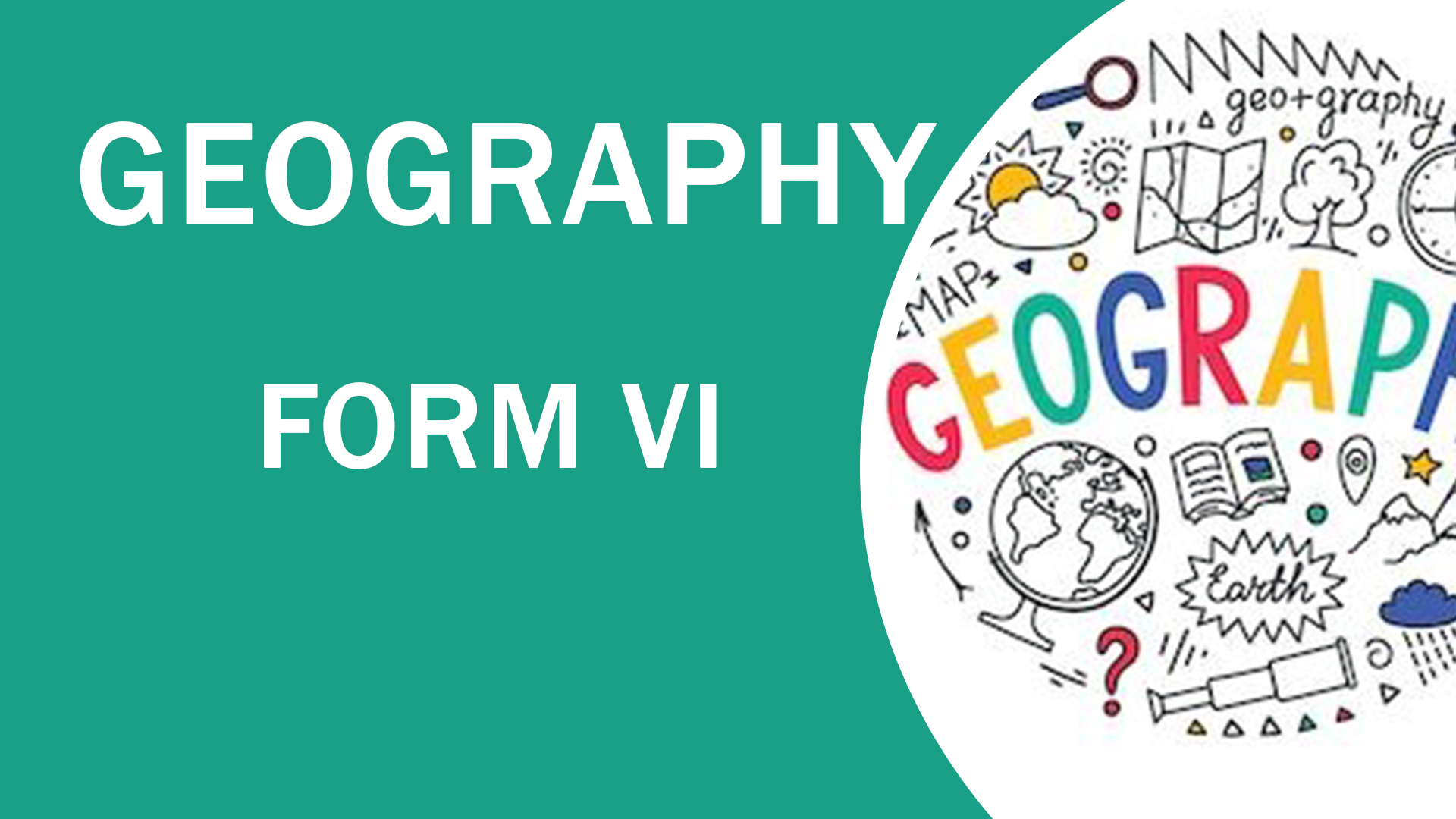Certainly! Here's a well-structured Geography Form VI Learning Outcomes section for your Edukea website videos:
Learning Outcomes for Geography – Form VI
By the end of the Form VI Geography course, students will be able to:
-
Analyze the global impact of human activities on the environment, including urbanization, deforestation, and climate change, and propose strategies for sustainable development.
-
Evaluate the role of economic systems and their effect on resource distribution, trade, and global development patterns.
-
Use advanced geographic tools and techniques, including GIS (Geographic Information Systems), to analyze spatial data and solve complex geographical problems.
-
Examine and assess the causes and consequences of global environmental change, including global warming, biodiversity loss, and natural disasters.
-
Understand and interpret the relationships between physical geography (e.g., landforms, climate, ecosystems) and human geography (e.g., population, migration, urbanization).
-
Conduct independent geographical research, including fieldwork, data collection, and the use of scientific methods to analyze real-world issues.
-
Critically analyze and present geographical data, drawing conclusions from complex datasets and explaining geographic phenomena clearly and effectively.
-
Evaluate strategies for managing natural resources and mitigating the effects of environmental degradation and climate change at local, national, and global levels.
These outcomes ensure students are prepared to tackle advanced geographical topics, understand global challenges, and pursue higher education in geography, environmental studies, and related disciplines.
Let me know if you need any further adjustments or additional content!
Certainly! Here's a clear and concise Geography Form VI Requirements section for your Edukea website videos:
Requirements for Geography – Form VI
To succeed in Form VI Geography, students should have:
-
A solid understanding of Form V Geography concepts, including economic systems, environmental issues, resource management, and urbanization.
-
Strong analytical skills, particularly for interpreting complex geographical data and trends using tools such as maps, graphs, and statistical methods.
-
Knowledge of geographic research techniques, including familiarity with GIS (Geographic Information Systems) and spatial data analysis.
-
Good understanding of global environmental challenges, including climate change, sustainability, and natural disaster management.
-
Ability to conduct independent research, critically analyze geographical issues, and present findings in a well-structured manner.
-
Advanced knowledge of human geography (population dynamics, urbanization, and globalization) and physical geography (environmental processes, ecosystems).
-
Interest in global and local geographical issues, as well as a curiosity about how geography affects social, political, and economic systems.
These foundational skills prepare students to tackle advanced geographical topics and equip them for university-level studies in geography, environmental science, and related fields.
Let me know if you'd like the learning outcomes for Form VI or any further adjustments!
Certainly! Here's a detailed Geography Form VI Description for your Edukea website videos:
Geography – Form VI
Form VI Geography represents the culmination of high school geographical studies, focusing on advanced topics that prepare students for university-level geography and environmental science. This course delves into complex themes such as global environmental change, sustainable development, advanced economic geography, and the interplay between human activities and natural systems. Students will study topics such as resource management, the global economy, population dynamics, and the impacts of climate change and natural disasters. Form VI Geography also emphasizes geographical research and the use of sophisticated data analysis techniques, including GIS (Geographic Information Systems) and spatial analysis tools. Through independent projects and case studies, students will apply theoretical knowledge to real-world scenarios, enhancing their understanding of global challenges and their solutions.
Let me know if you'd like the requirements or learning outcomes for Form VI as well!
